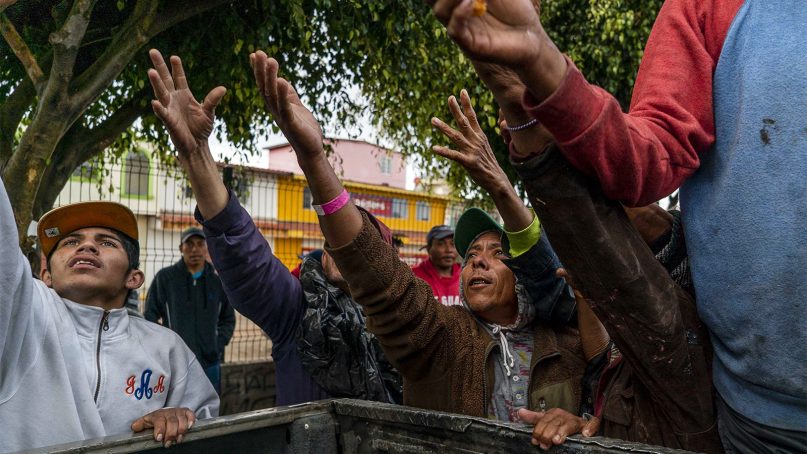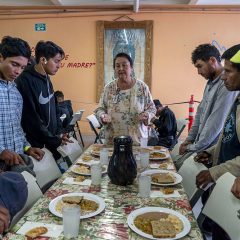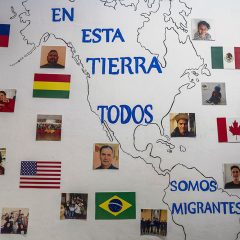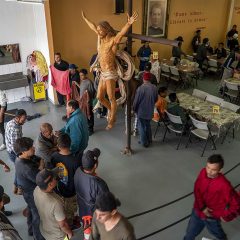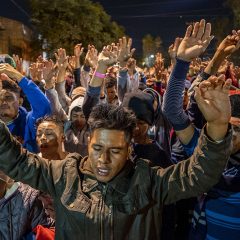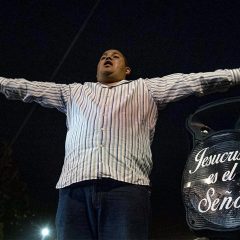TIJUANA, Mexico (RNS) — The bulk of the migrant caravan that started out from Central America this fall has reached the United States’ border with Mexico, and the city of Tijuana is overwhelmed by more than 6,000 people who have arrived, many hoping to gain political asylum in the United States.
Although accustomed to constant traffic across the border, Tijuana is not fully prepared to accept such a large group for an unknown amount of time. Nonetheless, the Central American migrants have seemingly been welcomed thus far, in part thanks to religious groups that are organizing to help manage the sudden influx.
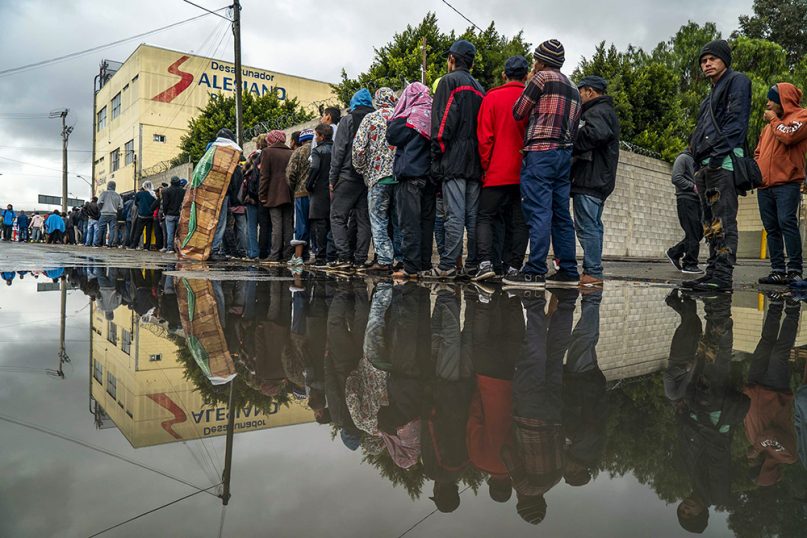
Central American migrants line up to eat breakfast at the Salesian order’s Padre Chava Refectory, in Tijuana, Mexico, on Nov. 29, 2018. RNS photo by Jair Cabrera Torres
The Salesian Refuge of Tijuana, run by members of the Roman Catholic Salesian order, manages the Padre Chava Refectory, located north of Tijuana, just a few meters from the border. The refectory has been serving meals for more than 19 years. Typically, the Salesians serve 800 breakfasts per day to migrants and street people in Tijuana. However, the group plans to offer three meals per day to help the migrant caravan. Last week the group was already serving more than 1,200 breakfasts alone.
- A Salesian volunteer, center, prays with migrants before breakfast at the Padre Chava Refectory, in Tijuana, Mexico, on Nov. 29, 2018. RNS photo by Jair Cabrera Torres
- A map of North and South America reads “In this land we are all migrants” at the Salesians’ Padre Chava Refectory, in Tijuana, Mexico, on Nov. 29, 2018. RNS photo by Jair Cabrera Torres
- Migrants wait to be seated for breakfast at the Padre Chava Refectory in Tijuana, Mexico, on Nov. 29, 2018. RNS photo by Jair Cabrera Torres
Situations like this are not new for the Salesians, whose main objective is to help vulnerable people and migrants in particular. In late 2016, another migrant group, consisting of about 3,000 Haitians, became stranded at the border. The Salesians helped find shelter for many of them in the Mexican state of Baja California, after they were denied asylum in the U.S.
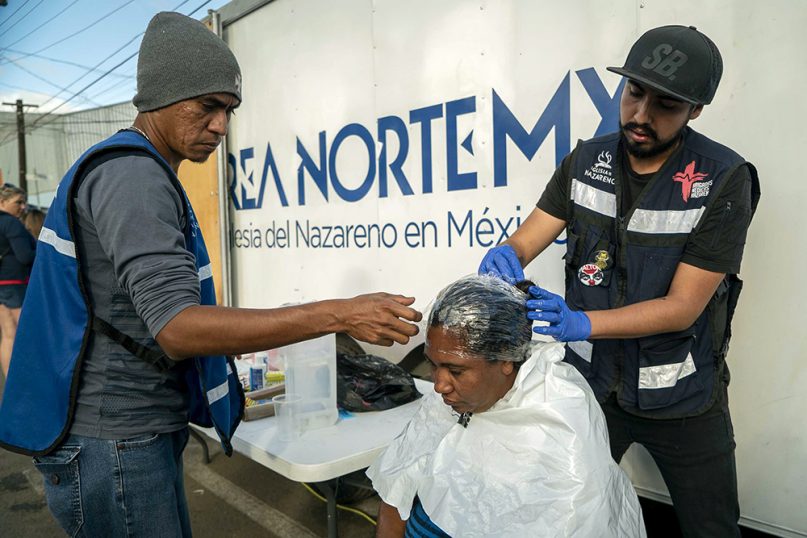
Volunteers with a mobile unit of the Church of the Nazarene in Mexico treat a migrant’s head lice and offer other medical care in Tijuana, Mexico. RNS photo by Jair Cabrera Torres
Similarly, the Church of the Nazarene in Mexico has installed a mobile unit on the outskirts of the Salesian shelter to address the migrants’ medical needs. Many of the Central Americans arrived with lice, bedbugs and a plethora of other ailments after trekking several thousand miles.
- A Honduran girl walks with her mother through the streets of Tijuana, where they have been staying while trying to get asylum in the U.S. RNS photo by Jair Cabrera Torres
- Migrants pray with Pastor Jorge Guillermo Santos Ríos the evening of Nov. 29, 2018, in Tijuana, Mexico. RNS photo by Jair Cabrera Torres
Aside from large religious groups, some individuals are proselytizing to migrants, or at least hoping to help with spiritual needs in addition to the myriad external needs the caravan members face. Pastor Jorge Guillermo Santos Ríos offers nightly prayers, and dozens have come asking for a little hope in achieving the American dream.
- Pastor Jorge Guillermo Santos Ríos leads an evening prayer service at Tijuana, Mexico. RNS photo by Jair Cabrera Torres
- Migrants pass by the U.S. flag in Tijuana, Mexico. RNS photo by Jair Cabrera Torres
